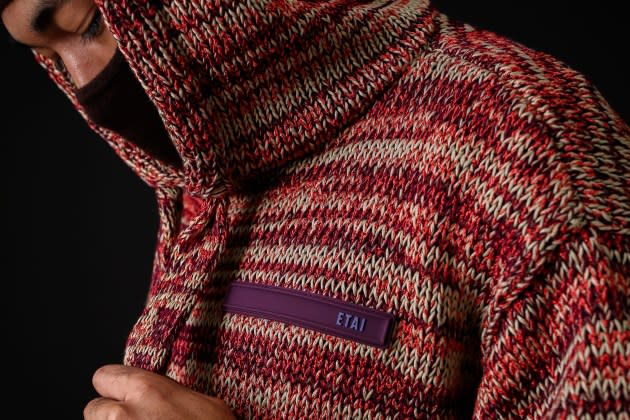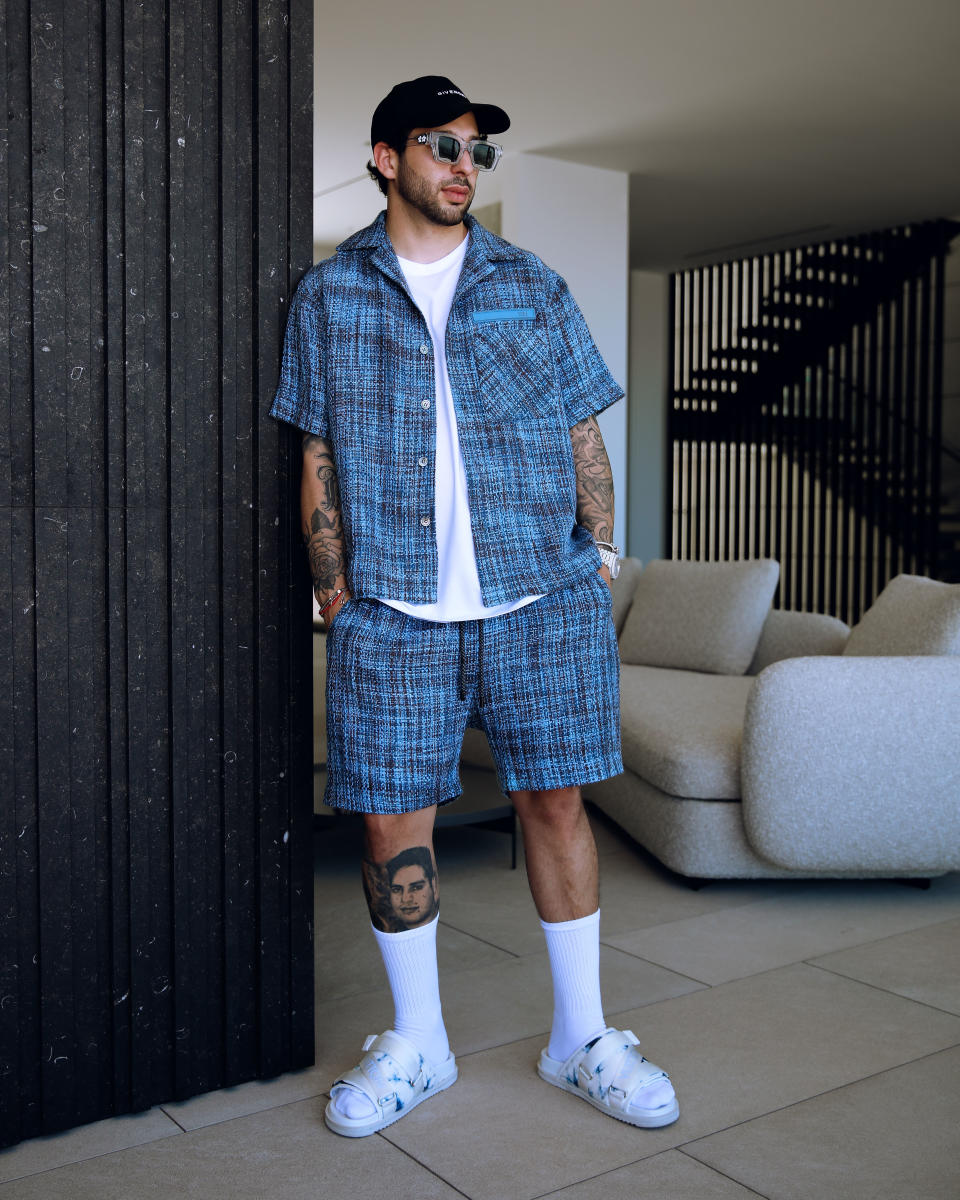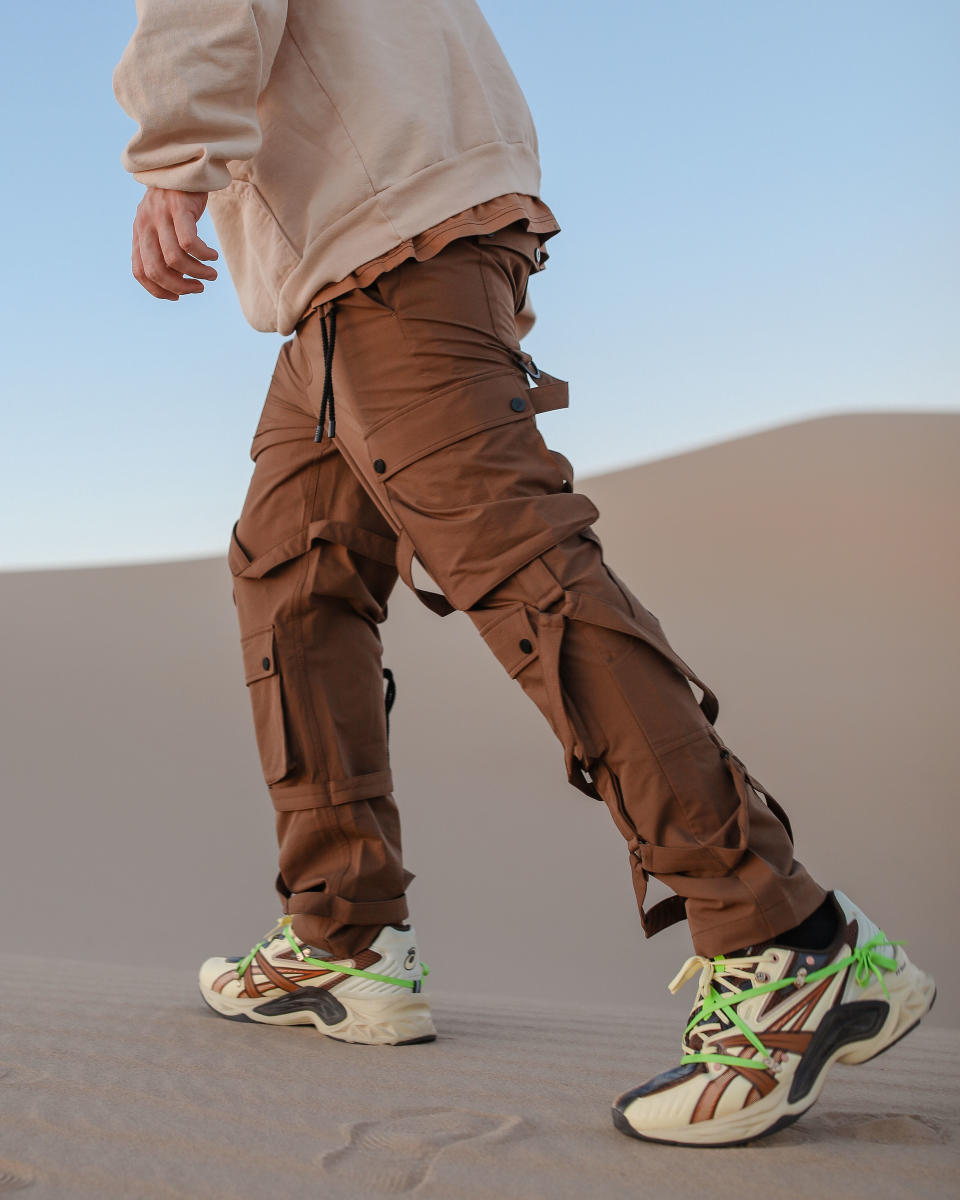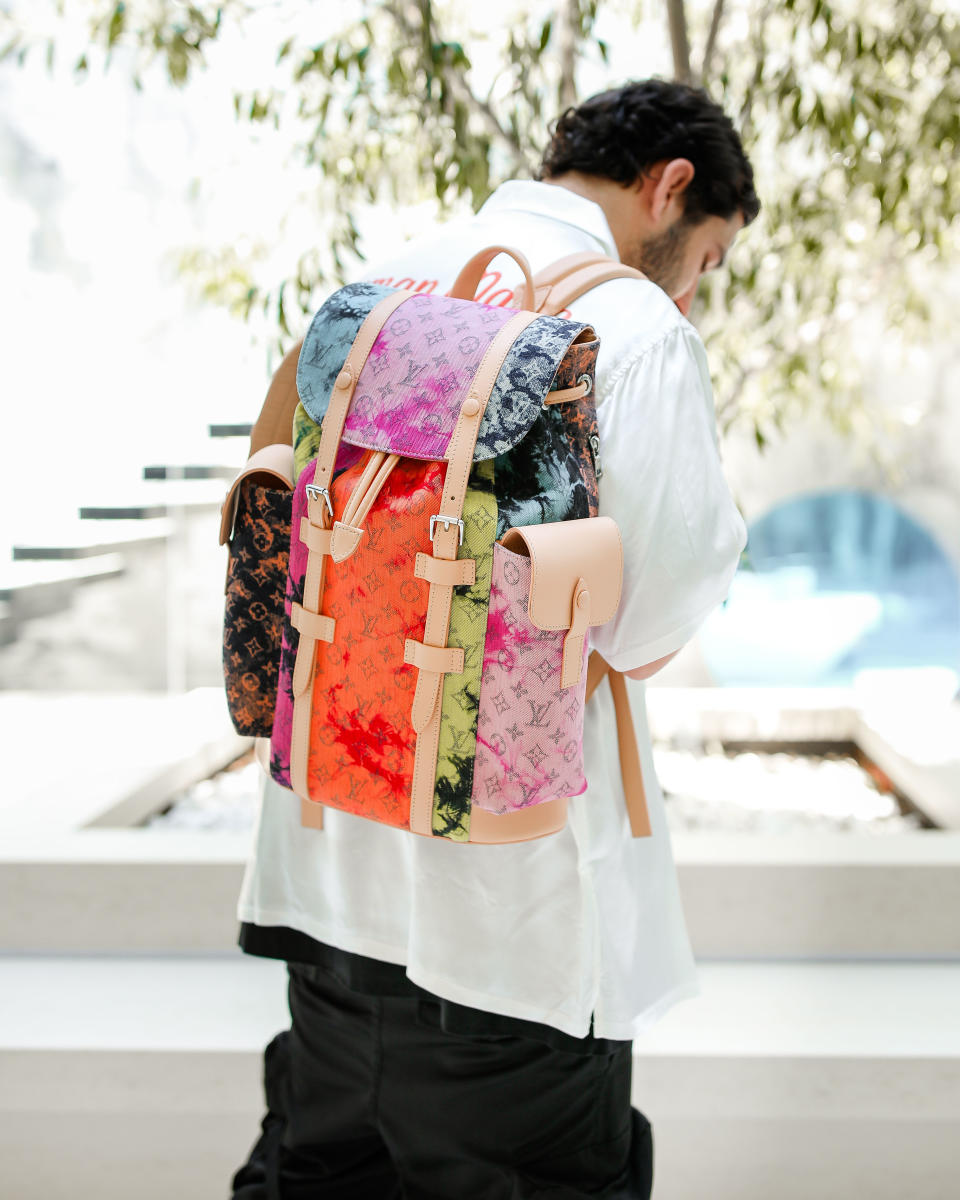Luxury Logo Remixer to Travis Scott and Billie Eilish Launches Etai
- Oops!Something went wrong.Please try again later.
- Oops!Something went wrong.Please try again later.

Etai Drori grew up in a fashion family, the son of L.A. ready-to-wear designer Nony Tochterman, but no one thought he would be the one to carry on that creative tradition. Then, 10 years ago, he launched a custom accessories business that took off.
He cut up old Louis Vuitton handbags, and later Louis Vuitton towels, and transformed them into luxury goods of their own — handbags, backpacks, couches and golf club bags that earned him a celebrity following, including Billie Eilish, Ariana Grande, Travis Scott, John Galliano and David LaChapelle. Those haute upcycled items sold for thousands of dollars.
More from WWD
A Trio of Italian-Owned Luxury Stores Opens at South Coast Plaza in Southern California
Two Graffiti Artists Sue Guess Inc. and Macy's Over Use of Their Artwork
From the Waist Up: Six Key Pieces Seen at Milan Presentations
Then he started fashioning custom cigarette lighters from the leftover Louis Vuitton luxury scraps he was accumulating and selling them for $200 to $500. “It changed everything with those lighters,” Drori said of what became his bread and butter.

A decade later, he was ready to channel his maverick spirit into a more traditional full-fledged menswear line, Etai — with the help of his fashion industry veteran mother.
Tochterman’s Petro Zillia collection was a 2000s favorite at Los Angeles Fashion Week, where she was known for her colorful collections, her pink hair, and riding her pink bicycle down the runway. She now is the creative director at Motives International, a New York-based company making men’s, women’s and children’s clothing in factories around the world for major clothing companies.
From the heart of the Los Angeles Fashion District, in a 110-year-old Renaissance-revival building, Drori, 29, launched the brand in March, and is carving out a niche in L.A.’s rich menswear landscape by emphasizing curated collections in limited production runs.
“Everything is treated as art and made in limited editions,” the young designer said of how he’s translating his early approach to his broader apparel collection, which features cashmere bomber jackets and Muay Thai shorts, hand-loomed melange knit hoodies, tweedy lounge shirts, utility-inspired pieces such as balloon cargo pants and front yoke dart jeans, $480 to $960.

He is branching out to other more accessible styles, too, some that will be made in China to keep the price down, such as a shirt of Japanese fabric that will go for around $300.
But Drori emphasizes that quality and detail are an essential part of his fashion mantra. One of the first pieces he developed was a puffer jacket, a style that all his friends wore but he thought was not up to the price. “For me it was, how can I design a puffer jacket that is five times better?” he explained.
Many brands’ puffer jackets have a zip-off hood that exposes the zipper. Drori didn’t like that look and made one with a hood that zips off and then the zipper is hidden underneath the snaps. That jacket goes for $1,540.
The menswear collection is sold on the etaila.com website and carried by a few retailers, including H.Lorenzo in Los Angeles and Nubian Harajuku in Tokyo.

It still baffles Tochterman that her son is the one who took up fashion design. One time she walked down the catwalk with a much younger Etai on one side and her daughter, Romie, on the other. Etai was mortified. After the show, he cried and begged his mother not to make him walk down the runway again. “I just wanted to play. I had no interest in fashion,” her son recalled.
Now Drori is in fashion and his younger sister, who continued to walk the runway many more times as a child attired in mini replicas of Petro Zillia’s latest designs, is an investment banking associate. “Honestly,” said Tochterman, “he was the last one I ever thought I would see sitting at my sewing machine at home.”
Best of WWD

